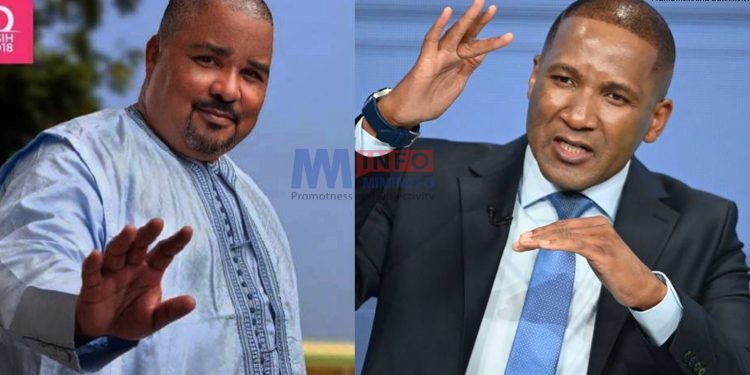Opposition leader Joshua Osih, the Chairman of Cameroon’s Social Democratic Front (SDF), recently congratulated Duma Gideon Boko, Botswana’s newly elected President, following his historic victory over the long-standing ruling party. Osih shared his congratulations in a Facebook post, hailing Botswana’s achievement as the nation’s first transfer of power from the ruling party since gaining independence in 1966.
In his post, written in French, Osih said, “Congratulations to Botswana for its first democratic alternation since September 30, 1966, and bravo to the opposition, the Umbrella for Democratic Change (UDC), for securing this victory against the ruling party, the Botswana Democratic Party (BDP).” Osih expressed hope that Cameroon’s ruling party, the Cameroon People’s Democratic Movement (CPDM), might take inspiration from Botswana’s democratic milestone as Cameroon approaches its 2025 elections.
The message has sparked lively debate in Cameroon’s political circles, with many citizens reflecting on the significance of Botswana’s peaceful transition and the possible implications for their own nation. In Cameroon, where the CPDM has been in power since 1982, calls for democratic reform have been longstanding, and Osih’s comments have prompted mixed reactions.

Calls for Change?
Some Cameroonians interpreted Osih’s statement as a veiled call for political change at home. One user, Ozas Ose, questioned Osih’s intent, asking, “Is it the SDF or the CPDM that needs inspiration?”—implying that Osih’s remarks might be seen as tacit support for the ruling party as the 2025 elections draw near.
Myron Peterson, another commenter, critiqued the SDF’s political track record, stating, “They [Opposition parties in Botswana] have a political roadmap; they serve their people. What have you done as an MP for the past six years?” He argued that waiting for the 2025 campaign to address political change would be insufficient, urging early and sustained engagement.
Adding to the critique, Délassant Soprano highlighted the fragmentation within Cameroon’s opposition, asking, “How can the opposition change this country when they cannot manage a coalition? Everyone wants to be president.”
Osih’s message comes at a time when Cameroonians are increasingly vocal about the need for democratic reforms and an end to decades of single-party dominance.
Botswana’s opposition party, the UDC, led by Boko, achieved a landmark victory over the BDP in the October 30, 2024, elections, ending 58 years of uninterrupted rule by the BDP. Boko, a seasoned lawyer and prominent politician born in 1969, led the UDC with the campaign slogan, “Decent jobs, decent lives.” The party currently holds 36 of the 61 seats in Parliament, marking a new chapter in Botswana’s political landscape.
Mimi Mefo Info – Cameroon Opposition Leader Hails Botswana’s Election



